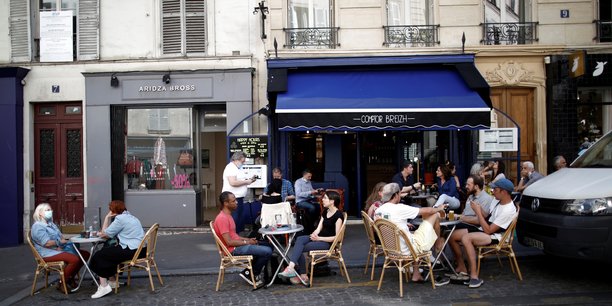With the lifting of health restrictions, the desire to set sail this summer is back. After a 2021 summer season which has shown a gradual return to normal, in Paris, or even in the regions, tour operators are counting on dynamic activity for the 2022 vintage. Tourists, especially Europeans, should return in large numbers to spend their holidays in France . But will hoteliers and restaurateurs be able to provide a quality welcome?
Already in tension for years, the sector, hit hard for two years by health restrictions linked to the Covid-19 pandemic, is struggling all the more to recruit. » 270,000 people are missing, all contracts combined “, estimates Hubert Jan, president of the branch restoration of Umih (Union of the trades and Industries of the Hotel business). In its latest survey on labor needs published in April, Pôle emploi even estimated that the sector was looking for 360,610 professionals, half of whom were seasonal jobs.
To find arms, the employers’ organization found a first response. The Umih is preparing to sign an agreement with the Tunisian government to facilitate the arrival of young seasonal workers, called « Tunisia Young Professionals », and under the supervision of the Ministry of the Interior. The objective: to attract 4,000 professionals from the sector to provide positions, in particular servers, or in accommodation with its 50,000 member establishments. Another convention, with Morocco, should follow.
Bilateral agreements
» These two French-speaking countries have young people, trained in our trades, who want to come and work with us. “, explains Hubert Jan of Umih.
What does this agreement that will be signed with Tunisia consist of? Under the leadership of the Ministry of the Interior, and via the services of the embassies, Umih will connect ANETI, the equivalent of Pôle emploi in Tunisia, and French companies wishing to recruit Tunisian seasonal workers. The contracts (fixed-term contracts) will be for a maximum of five months, paid according to the salary scales of the hotel and restaurant industry in France. In addition, employers will have to offer accommodation to foreign employees. The latter must apply on a recruitment platform (HCR-EMPLOI), set up by the employers’ organization.
Already in the pipeline for 4 years, the agreement with Tunisia is part of a bilateral agreement, which has existed since 2003 between France and Tunisia on the exchange of young professionals. This agreement gives access to the French labor market to young Tunisians who are qualified or experienced in many sectors (construction, hotels and restaurants, IT, the medical sector, personal services, etc.). Conversely, young French professionals can go to work in Tunisia.
Improve working conditions
This type of recruitment operation is inspired by what is already practiced in the agricultural sector, which also relies heavily on seasonal workers and multiplies the incentive schemes to recruit foreign workers (TESA, OFII contracts, etc.).
For the hotel and restaurant industry, however, these potential recruits will not be enough to make up for the lack of manpower. To attract more, the sector is also working to improve the working conditions of employees in the sector, many of whom have left the profession because of low salaries, or even staggered hours. Thus, since April 1, a wage agreement has established a minimum wage 5% higher than the minimum wage and an average increase of 16.33% in the wage scale. In addition, a negotiation was opened on working conditions. It is due to open on May 31.
